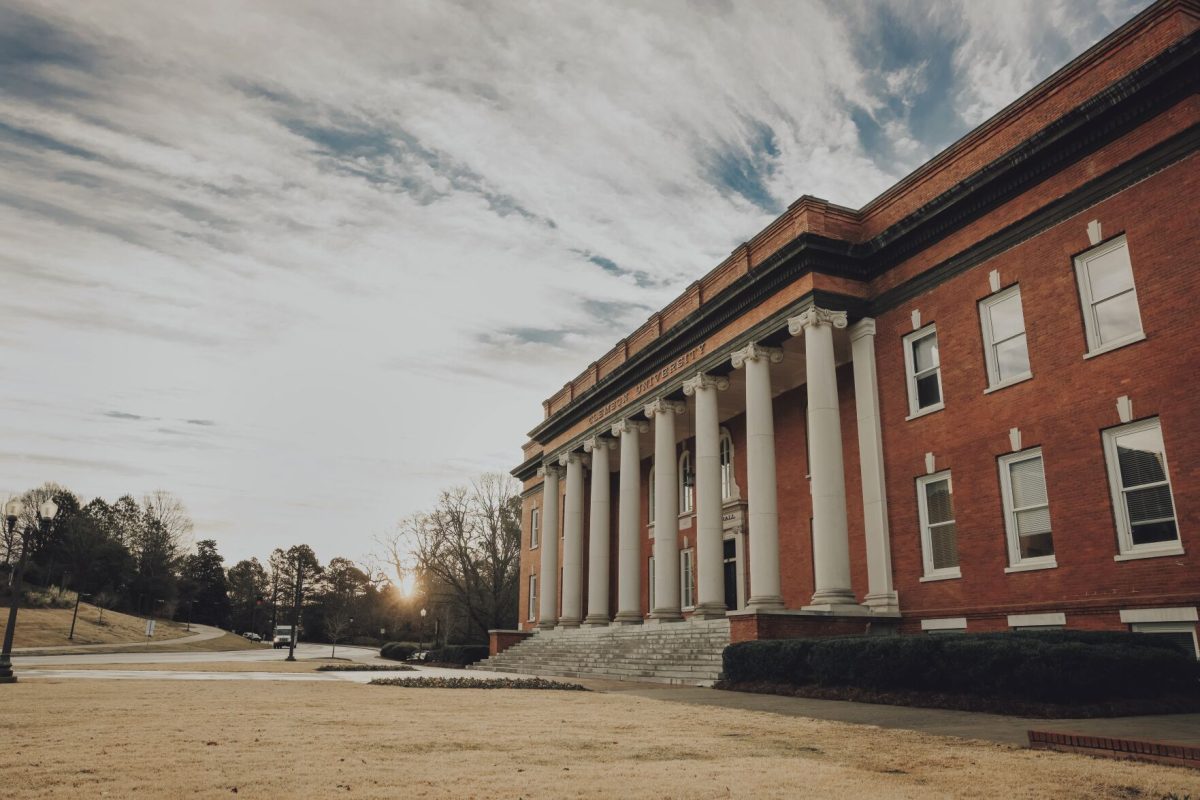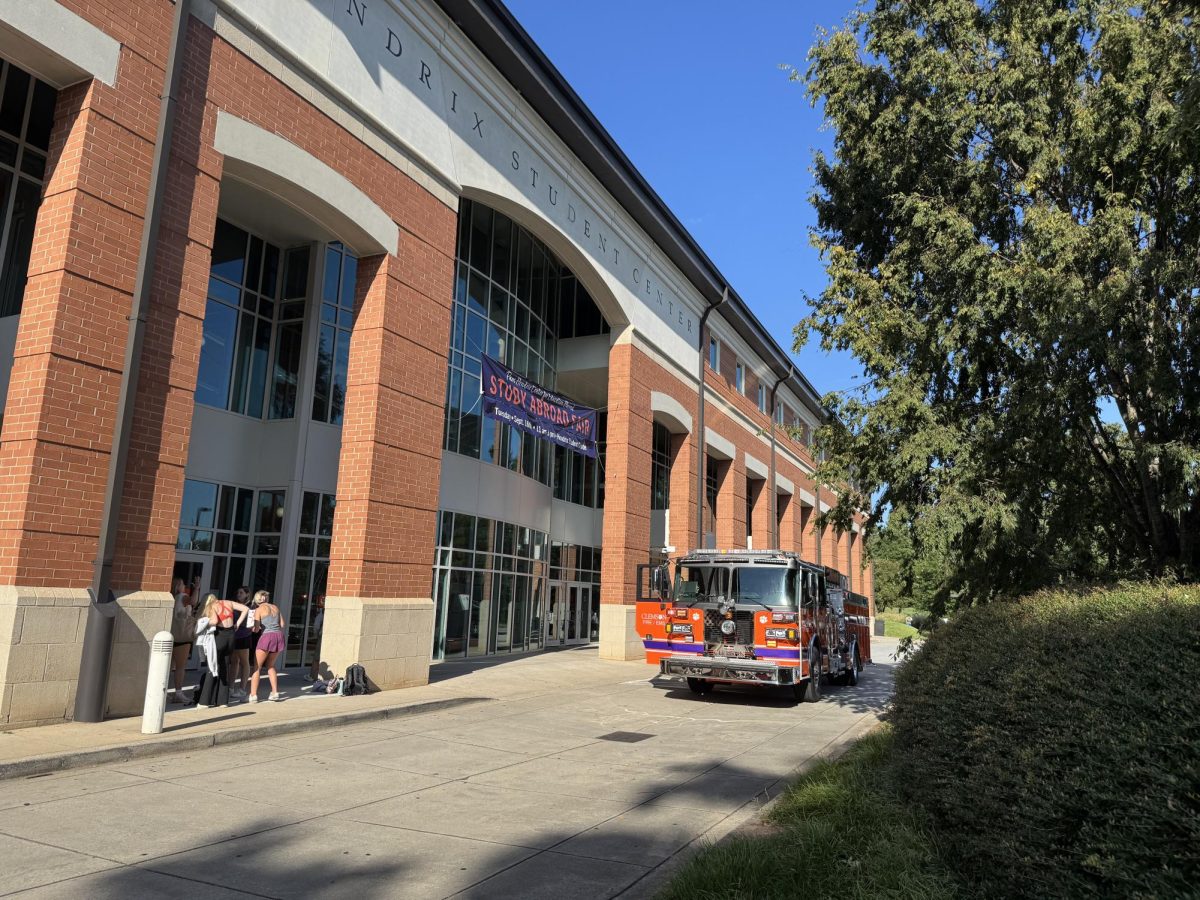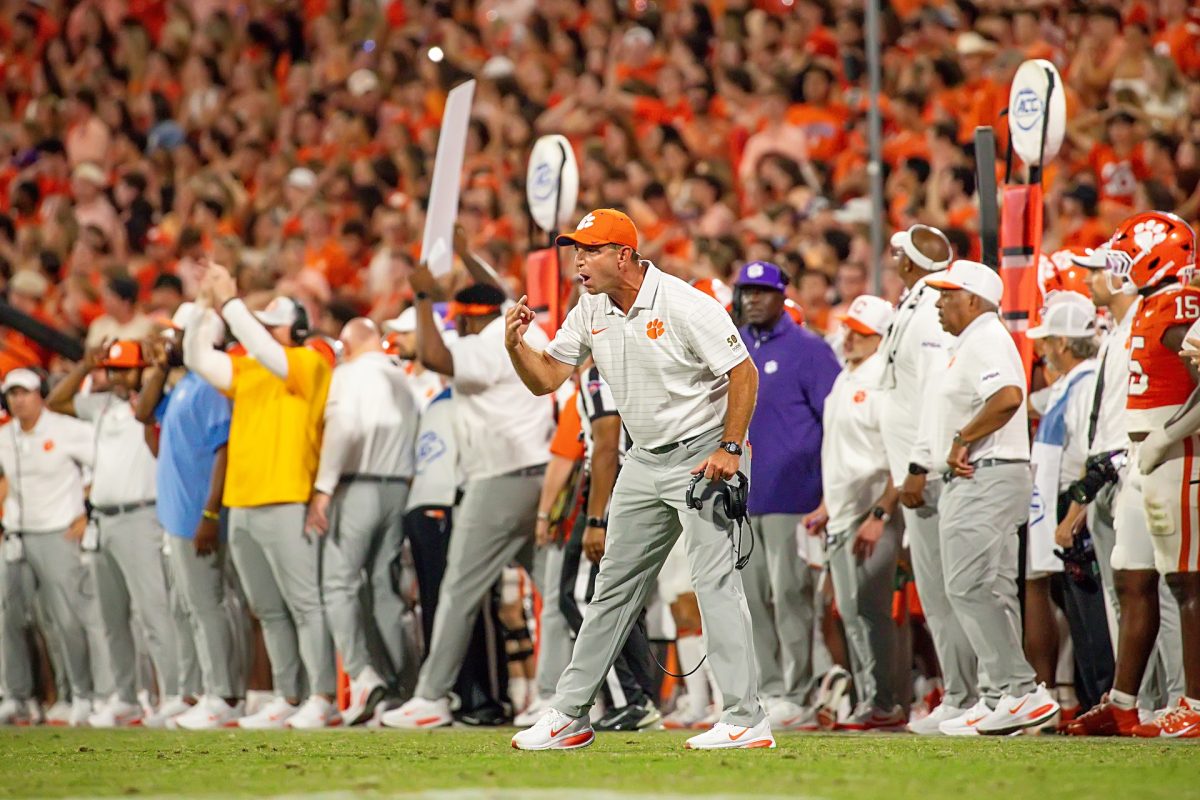Clemson University announced a hiring pause, spending limit and travel restriction due to economic uncertainty on March 25 after tightening “mission critical” expenditures through fiscal year 2025.
“All other hiring and personnel actions” will be paused until May 7, and spending for nonessential supplies and contracts will be limited until June 17, according to spending guidelines that the University released.
Additionally, all travel is now limited to “essential University business.” All travel requests must be approved by the vice president or dean.
This announcement comes after Anthony Wagner, the former executive vice president for finance and operations and chief operating officer, told The Tiger in January that “there is no hiring freeze” and that “Clemson is actively hiring people every day.”
The main goal of these limitations is to maintain financial strength and stability, according to a letter sent on March 25 from Robert Jones, provost and executive vice president for academic affairs, and Rick Petillo, vice president of finances and chief financial officer.
This current state of uncertainty was compared to the Great Recession and the COVID-19 pandemic in the letter from Jones and Petillo. The administration hopes to strategically manage resources during a nationwide conflict.
“Clemson University’s financial position has never been stronger, with the highest credit ratings in our history from Moody’s, Fitch and S&P Global Ratings. This recognition reflects our long-standing commitment to conservative financial stewardship and prioritization of expense management,” Joe Galbraith, a University spokesperson, told The Tiger in an email.
The letter from Jones and Petillo also stated that higher education is currently facing “several economic uncertainties” due to federal priorities in the U.S. economy. The University’s “highest priority is to protect our mission of education, research and service.”
“Every action (the University takes) to limit non-essential spending during this time will help maintain our financial strength in the future,” Galbraith told The Tiger.
As for now, the University will continue searching for a new provost as this “position is vital to the success of Clemson University,” according to the letter.
Provost Jones announced on Feb. 13 that he plans on retiring later this year once the University has found a successor.
An update to the limitations will be released in June but could come earlier if warranted, according to the spending guidelines.
The guidelines also state that all “promotion and tenure for faculty will not be affected.”
This decision comes after President Donald Trump signed an executive order on March 20 to begin dismantling the United States Department of Education.
“Closure of the Department of Education would drastically improve program implementation in higher education,” Trump’s executive order states.
Trump aims to return the objective of education to the states, which may be impacted by the amount of taxes a state receives.
The Department of Education supports state and local education systems and administers funding for programs and individuals in higher education institutions.
Federal funds are determined through “a set formula, competition and financial need determination,” according to the U.S. Department of Education website.
Most recently, the Clemson University College of Education received a $6 million grant from the Department of Education for a mentor program for novice teachers to become apprentices with an experienced teacher for a year.
The University may not be able to continue conducting such programs due to the expenditure limit put in place and the executive order to give educational power back to the states, should this Trump administration decision impact receiving grants.




















Grace • Apr 11, 2025 at 4:15 pm
At least the student athletes have the new $5.7 million building. Education does not seem to be the number one priority any more.
Geoff Gilson • Apr 4, 2025 at 7:02 pm
Clemson University has an annual budget of $2.1 billion. Student fees contribute $700 million in annual revenues towards that budget. Clemson admin and its Board of Trustees say that student government cannot be represented on the BoT because students don’t have enough experience of high finance. Yet, the qualifications of Clemson admin and its BoT extend to having to put in place a hiring freeze and spending limits, while still committing themselves to multi-million dollar building projects. The Clemson Chief Financial Officer says Clemson’s finances are fine, yet spending is now limited to things which are ‘mission critical.’ And that apparently doesn’t include improving Redfern, hiring more counselors, or paying all grad assistants a living stipend. I’m not suggesting that student representatives would do a better job at the finances than the present BoT. But, if there are going to be mistakes, wouldn’t it be fair to have students included in the decision-making that is producing the mistakes that impact them?